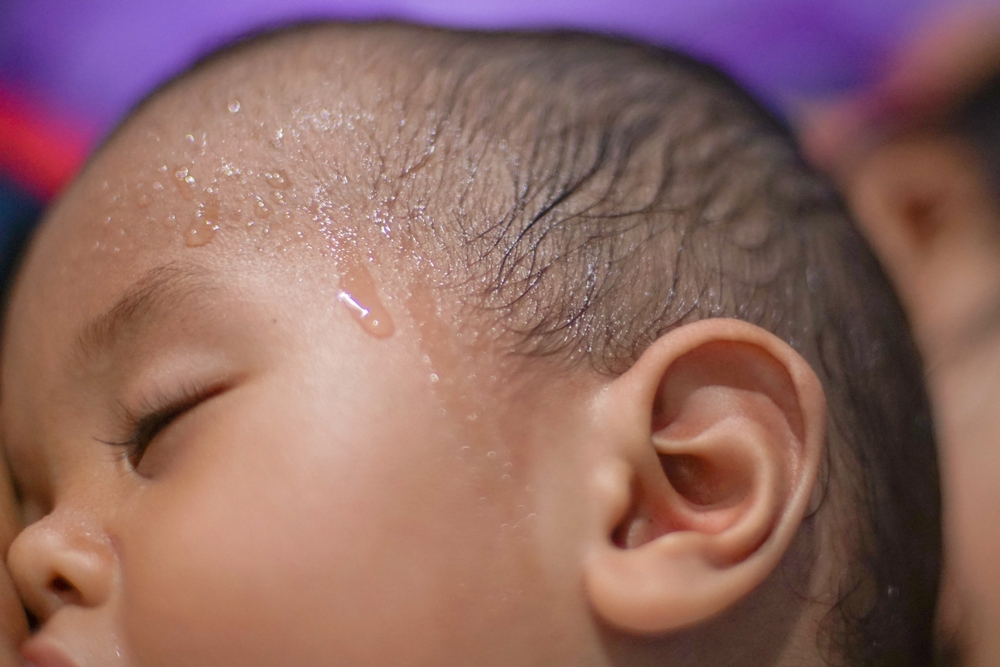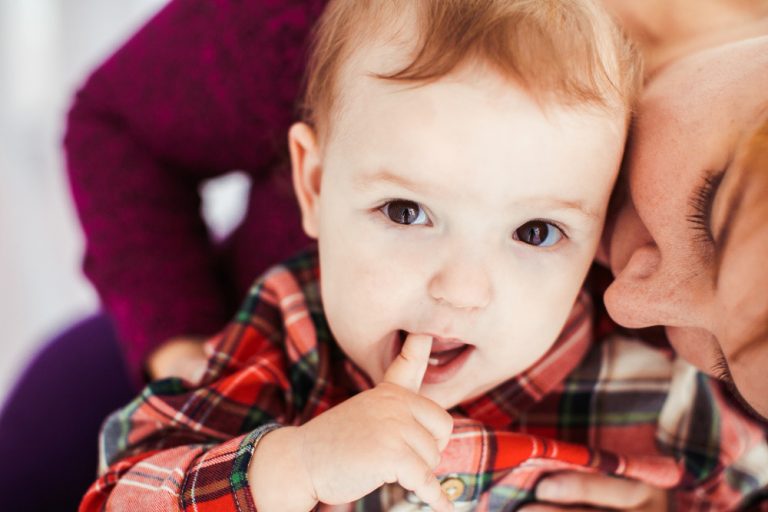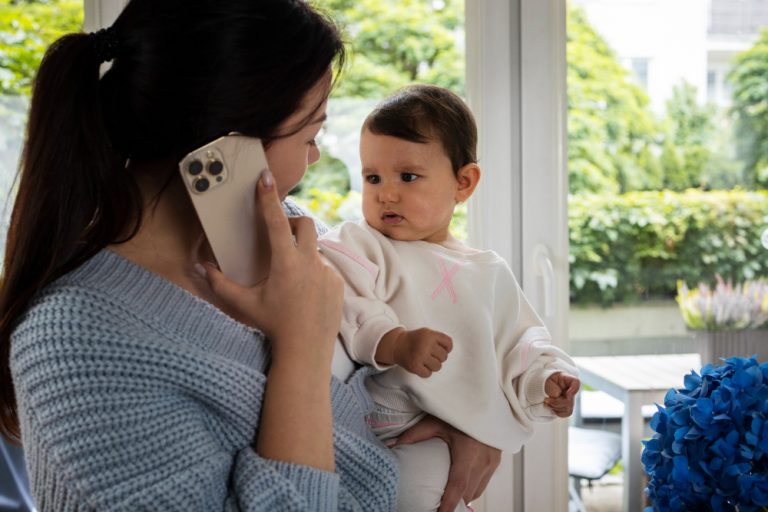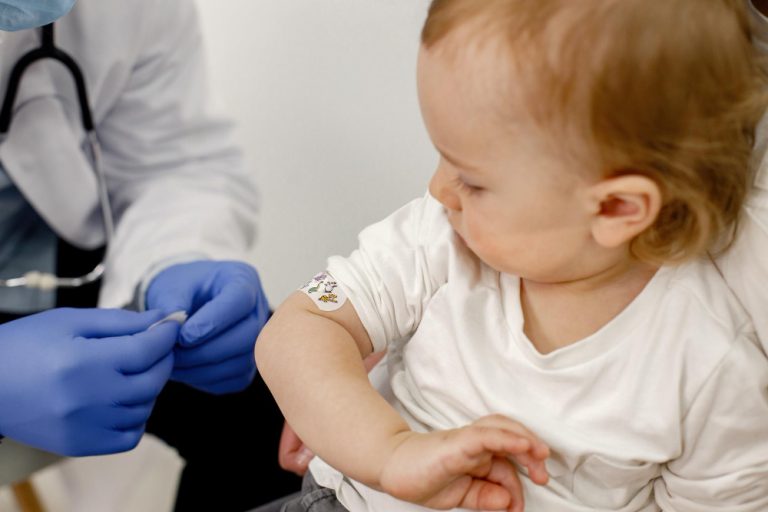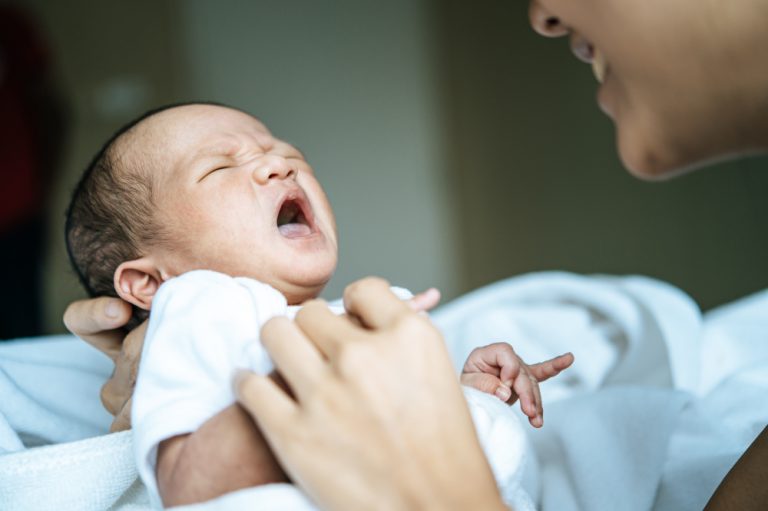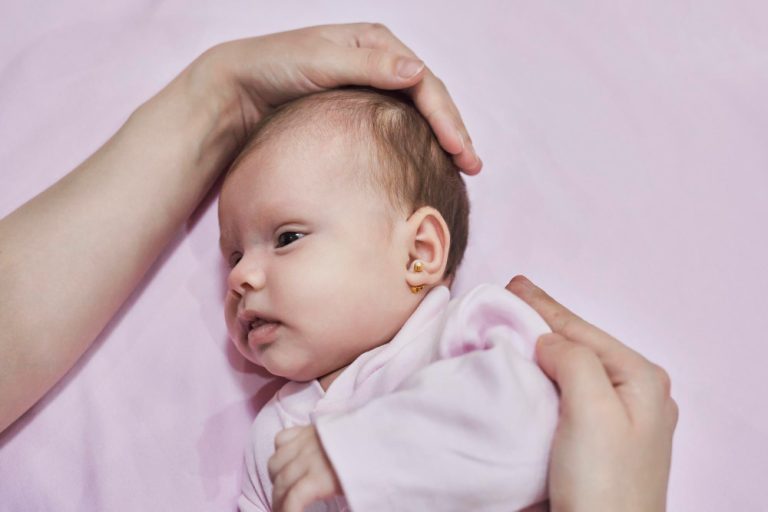When Do Babies Start To Sweat: 7 Causes & Solutions
Do you find yourself puzzled by your baby’s sweating patterns, wondering what’s normal and when do babies start to sweat?
Baby sweating can be a common occurrence that leaves parents seeking answers and practical solutions. From understanding the causes behind excessive sweating to addressing potential concerns, it’s essential to keep your little one comfortable and healthy.
As a parent, witnessing your baby sweat may trigger various emotions and concerns. Is it related to their sleep habits?
Could it indicate an underlying health issue? In this blog, we aim to demystify the world of baby sweating by delving into the timeline of when do babies start to sweat, potential reasons for excessive sweating, and how to effectively manage this phenomenon.
Stay tuned as we provide valuable insights into the connection between baby sweating and sleep habits, shedding light on how to navigate this aspect of your baby’s well-being with confidence and knowledge.
Introduction to Baby Sweating
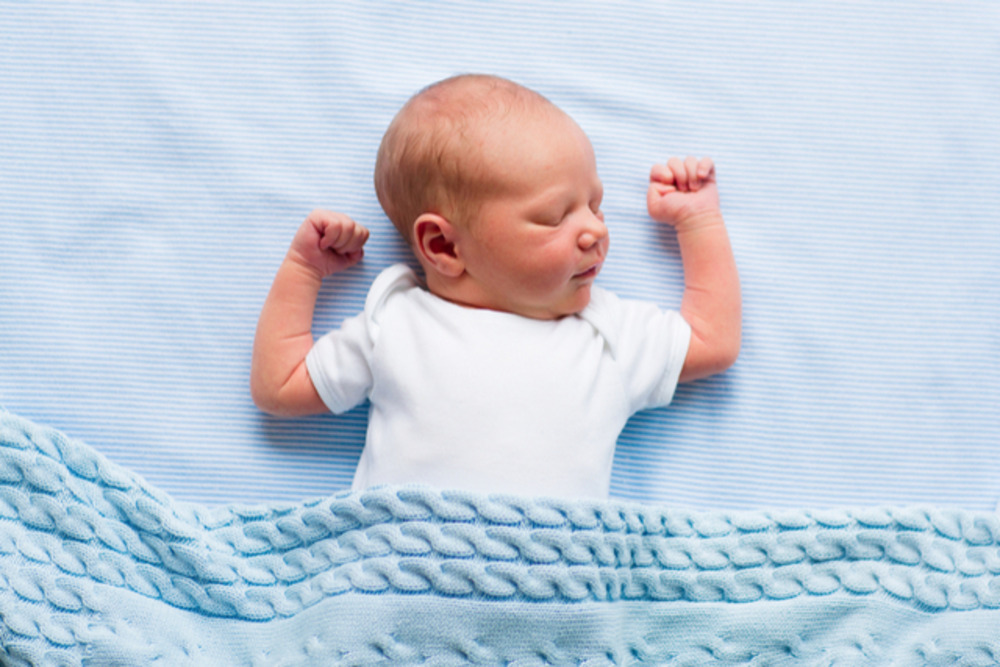
As a parent, it’s natural to be concerned about your baby’s well-being. One aspect that often puzzles parents is the phenomenon of baby sweating. While sweating in adults is commonly associated with physical exertion or hot weather, its occurrence in babies can be confusing.
This introductory section aims to shed light on the topic of baby sweating, its significance, and what parents need to know.
Babies have sweat glands just like adults, although theirs are not fully developed at birth. Sweating is their body’s way of regulating temperature.
It’s essential for parents to understand that sweating is a normal physiological process for babies. In fact, it can be a positive sign that their internal thermoregulation is functioning properly.
However, it’s important to distinguish between normal sweating and excessive sweating, which may indicate an underlying issue. Excessive sweating can sometimes be a cause for concern and necessitate further evaluation by a healthcare professional.
Understanding the causes, managing baby sweating effectively, and being aware of any red flags are crucial for parents to ensure their baby’s comfort and overall well-being.
By addressing these aspects, parents can navigate through the perplexity of why and when do babies start to sweat and help their little ones stay healthy and content.
Is It Normal for Newborns to Sweat?
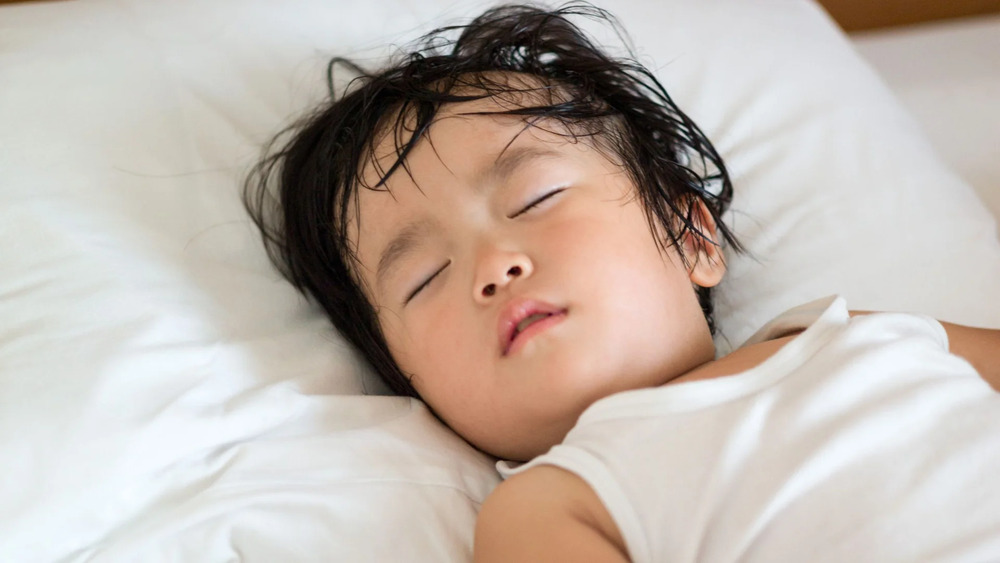
Sweating is a natural physiological response that helps regulate body temperature in humans. While it may seem unusual to see your newborn baby sweating, it is actually quite common and considered normal in most cases.
Newborns have an immature and developing nervous system, which can lead to their bodies struggling to maintain a stable body temperature.
As a result, they may perspire more than older children or adults. It’s important to understand that sweating in newborns typically begins shortly after birth.
Here are a few key points to keep in mind regarding newborn sweating:
1. Adjusting to the Outside World
Newborns are transitioning from the warm and controlled environment of the womb to the varying temperatures of the outside world. This adjustment period can cause them to sweat as their bodies adapt.
2. Feeding
Feeding can generate warmth and energy in babies, leading to increased sweating.
3. Overdressing
Overdressing your baby, especially in heavy or layered clothing, can contribute to excessive sweating. It’s important to dress them appropriately for the ambient temperature.
4. Crying
Intense crying can increase a baby’s metabolic rate and body temperature, resulting in sweating.
5. Deep Sleeping
Babies have different sleep cycles compared to adults, and they often enter into deep sleep stages during which their bodies may sweat more.
6. Genetics and Illness
Some babies may inherit a tendency to sweat more from their parents. Additionally, certain medical conditions or illness, such as fever, can cause increased sweating.
While newborn sweating is usually harmless, there are some cases where it may warrant further attention.
If you notice excessive sweating accompanied by other concerning symptoms like rapid breathing, poor feeding, or unusual lethargy, it’s essential to consult your child’s doctor for a thorough evaluation.
Overall, baby sweating is a normal occurrence in newborns as their bodies adjust to the world outside the womb. By understanding the underlying causes and monitoring any red flags, you can ensure your baby remains comfortable and healthy.
7 Common Causes of Newborn Sweating
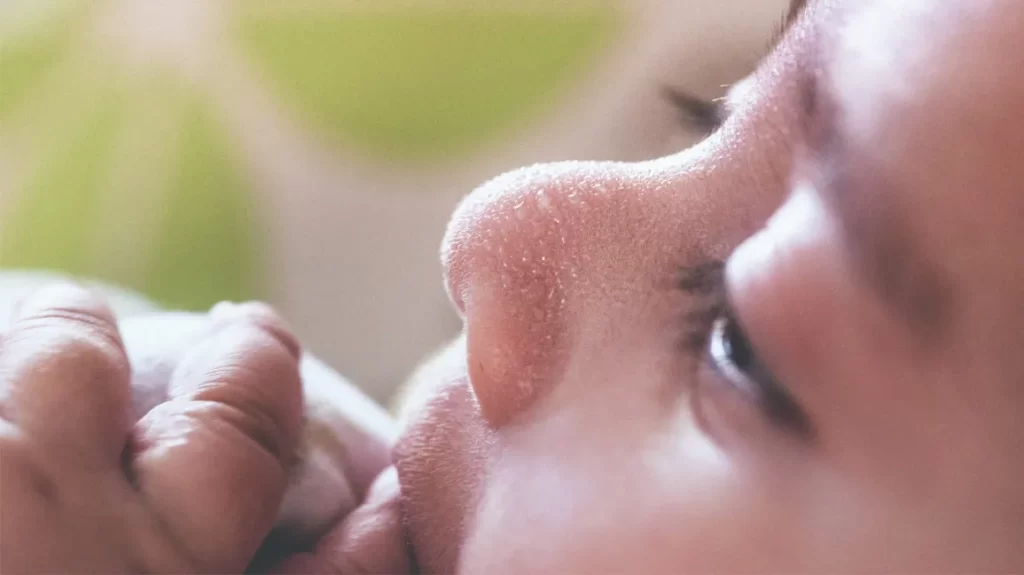
Newborn babies can exhibit sweating for various reasons as their bodies adapt to the outside world. Understanding the common causes of newborn sweating can help parents navigate this normal yet sometimes puzzling phenomenon.
Here are some factors that can contribute to newborn sweating:
1. Adjusting to the Outside World
- When babies are born, they go through a period of transition as they adjust to their new environment.
- This adjustment process can involve fluctuations in body temperature, leading to sweating.
- It is their way of adapting to the changes around them.
2. Feeding
- During feeding, babies can work up a sweat due to the physical exertion involved.
- Suckling and the effort required to obtain milk can cause sweating, especially when combined with the warmth of being held close to the caregiver’s body.
3. Overdressing
- Sometimes, parents may mistakenly overdress their newborns.
- This can lead to overheating, resulting in excessive sweating.
- It’s important to dress babies in comfortable, lightweight clothing appropriate for the ambient temperature.
4. Crying
- Crying is a newborn’s primary form of communication, but it can also cause sweating.
- The exertion and physical strain of crying can lead to increased body heat production, resulting in sweating.
5. Deep Sleeping
- Newborns tend to have deep sleep cycles, especially during the early months.
- During these periods of REM (rapid eye movement) sleep, their bodies may generate more heat, leading to sweating.
- This is a normal physiological response.
6. Genetics
- Genetics can play a role in a baby’s sweating patterns.
- Some babies may have a tendency to sweat more due to inherited traits.
- If both parents have a propensity for perspiration, it is likely that their baby will also exhibit this characteristic.
7. Illness
- In some cases, sweating in newborns may be a symptom of illness or infection.
- If your baby appears unwell, has a fever, or displays other worrisome symptoms.
- It is important to consult a healthcare professional for further evaluation.
Understanding the common causes of newborn sweating can help parents differentiate between normal sweating and potential concerns. By closely observing their baby’s behavior and taking appropriate measures to ensure a comfortable environment, parents can help their little ones navigate this transitional period with ease.
How to Handle Newborn Sweating
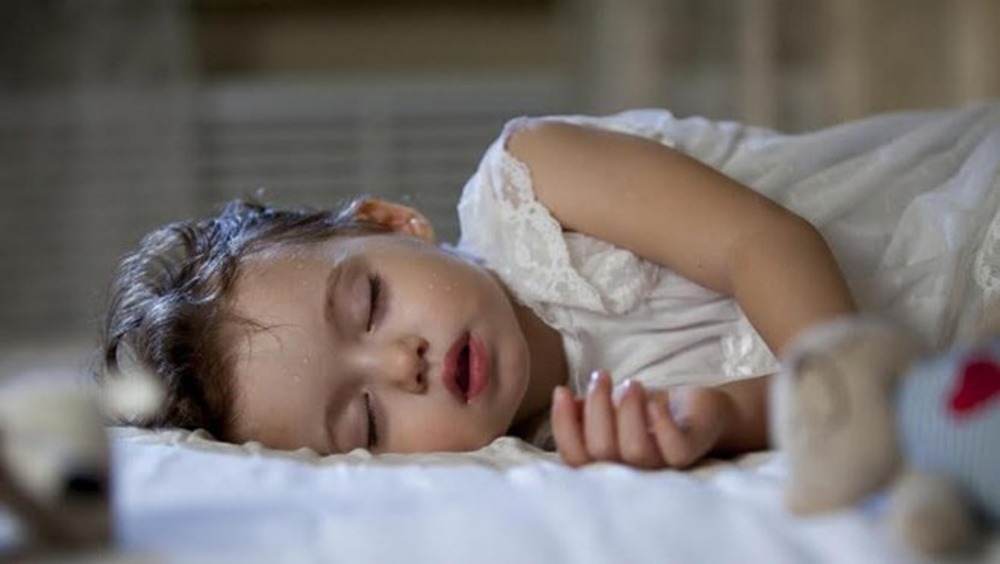
Sweating in newborns can be a common occurrence, causing concern for many parents. Fortunately, there are practical steps you can take to assess and manage your baby’s sweating, ensuring their comfort and well-being.
Assess the Environment
The first step in handling newborn sweating is to assess the environment in which your baby spends most of their time. Consider the following factors:
- Room Temperature
Ensure that the room temperature is comfortably cool, preferably between 68 to 72 degrees Fahrenheit (20 to 22 degrees Celsius). This helps prevent excessive sweating caused by overheating.
2. Humidity Level
Maintain a moderate humidity level in the room, between 30% to 50%. Too much humidity can contribute to sweating.
3. Dress Appropriately
Dress your baby in light, breathable clothing that allows their skin to stay cool and dry. Avoid overdressing them, as this can trap heat and promote sweating.
Remove a Layer of Clothing
- If you notice that your baby is sweating, consider removing a layer of clothing to help regulate their body temperature.
- A onesie or a light cotton outfit is usually sufficient, especially in warmer weather.
Stay Calm and Comforted
- Babies can become sweaty when they’re anxious or upset.
- If your little one is crying or agitated, try to soothe them by maintaining a calm and comforting environment.
- Cuddling, rocking, and gentle swaying can promote relaxation and reduce sweating.
Protect Their Skin
- Sweating can sometimes lead to skin irritation or rashes.
- To protect your baby’s delicate skin, ensure they are kept clean and dry.
- Pat their skin lightly with a soft towel to remove any excess sweat, paying attention to the folds and creases.
Remember, each baby is unique, and their sweating patterns may vary. While sweating in newborns is usually normal, consult your child’s doctor if you have any concerns or notice other symptoms accompanying the sweating.
By following these practical tips, you can help manage your baby’s sweating, providing them with optimal comfort and ensuring their well-being.
5 Red Flags to Watch For

When it comes to baby sweating, it’s important for parents to be aware of any potential red flags that may indicate an underlying issue. While sweating is a normal bodily function, there are certain signs that warrant further evaluation by a child’s doctor.
Here are some red flags to watch for:
1. Persistent and Excessive Sweating
- If your baby is sweating profusely, even in cool or comfortable environments, it may indicate an underlying health issue.
- Excessive sweating can be a sign of a more serious condition and should be addressed by a medical professional.
2. Associated Symptoms
- Pay attention to any other accompanying symptoms that may be occurring alongside sweating.
- Rapid breathing, rapid heart rate, or sudden changes in skin color could indicate a health problem that requires medical attention.
3. Poor Feeding or Weight Gain
- If your baby is sweating excessively and also experiencing difficulty with feeding or inadequate weight gain, it’s important to consult a doctor.
- These symptoms can be associated with various health conditions that need to be addressed promptly.
4. Unusual Sleep Patterns
- Sweating during sleep is common in babies, but if your baby is exhibiting excessive sweating combined with loud snoring, irregular breathing, or frequent wakefulness, it may be a sign of sleep apnea.
- This condition can have serious health implications and should be evaluated by a healthcare professional.
5. Abnormal Body Temperature Regulation
- If your baby’s body temperature seems consistently higher or lower than normal, it may indicate an underlying issue.
- Sweating excessively in combination with difficulty regulating body temperature should be discussed with a doctor.
Remember, it’s always better to err on the side of caution when it comes to your baby’s well-being. If you notice any of these red flags or have concerns about your baby’s sweating, don’t hesitate to reach out to your child’s doctor for further evaluation and guidance. They will be able to provide accurate assessments and appropriate medical advice tailored to your baby’s specific situation.
Understanding Why Babies Sweat
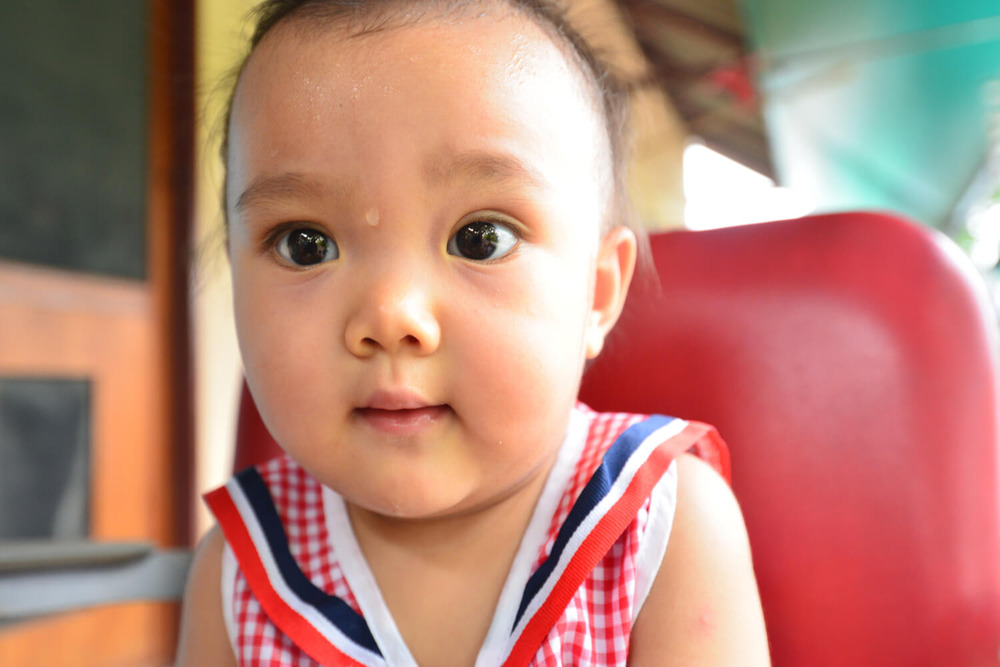
Babies may seem tiny and delicate, but they have surprisingly active sweat glands. Understanding why babies sweat can help parents better navigate their little one’s needs and ensure their comfort.
Here are some reasons behind baby sweating:
1. Excessive heat
- Babies have a higher metabolic rate compared to adults, which means they generate more body heat.
- Since their sweat glands are not fully developed, they depend on other mechanisms, such as sweating, to regulate their body temperature.
- When babies feel hot, their bodies naturally release sweat to cool down.
2. Regulating body temperature
- Newborns are not yet capable of regulating their body temperature perfectly.
- Sweating helps dissipate excess heat and maintain a suitable body temperature.
- It’s their way of maintaining balance in their tiny systems.
3. Sleep patterns
- Babies have a different sleep cycle than adults.
- During deep sleep, which is the deepest part of their nightly sleep cycle, babies may experience more sweat production.
- This is a normal occurrence and is part of their developing sleep patterns.
4. Potential medical conditions
- In rare instances, excessive sweating in babies may indicate an underlying medical condition.
- Conditions such as hyperhidrosis or congenital heart disease could lead to increased sweat production.
- If you notice excessive sweating accompanied by other concerning symptoms, it’s crucial to consult with your child’s doctor.
Understanding why babies sweat can help parents provide appropriate care and ensure their little ones’ well-being. Remember, sweating is a natural bodily function that aids in temperature regulation and overall comfort for babies.
Managing Baby Sweating During Sleep
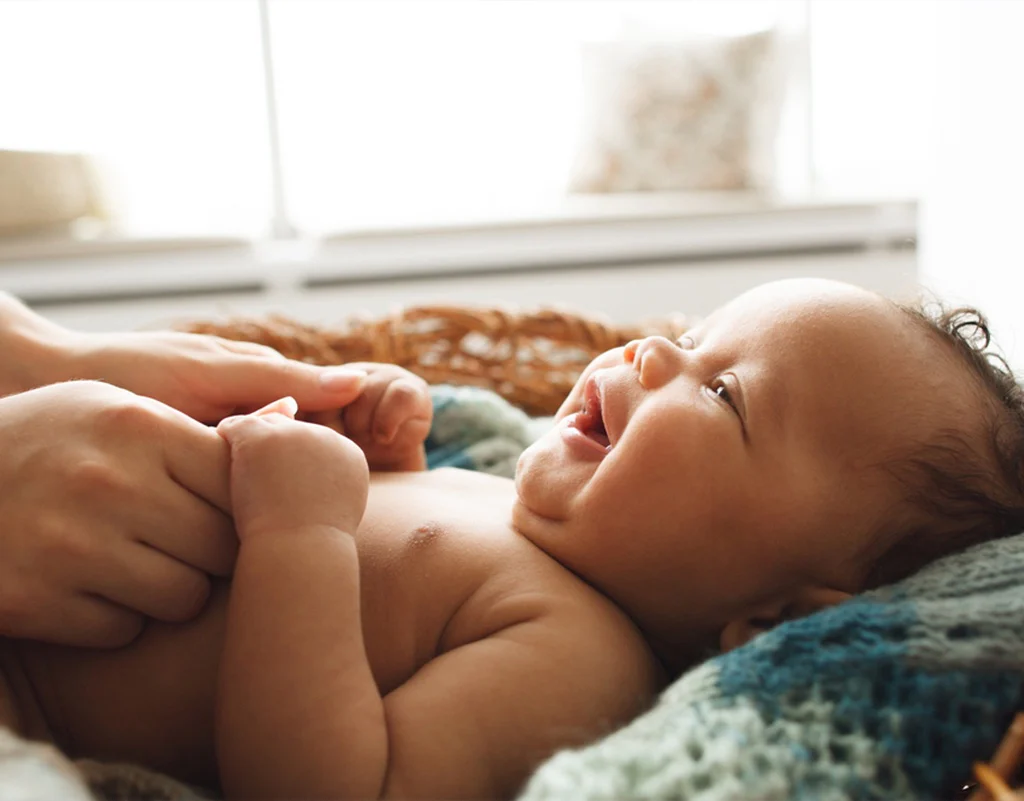
Babies and sleep often go hand in hand, but what happens when sweating becomes a nighttime struggle? Understanding the connection between baby sweating and sleep habits is crucial for parents in ensuring a comfortable and safe sleeping environment for their little ones. Let’s explore some insights and practical tips to manage baby sweating during sleep effectively.
Recognizing the Sleep-Sweat Connection
- During sleep, babies naturally regulate their body temperature, and sweating is a normal part of this process.
- However, excessive sweating or certain sleep habits can indicate underlying issues.
- Pay attention to signs such as snoring, snorting, or making nasal sounds during sleep, as these might correlate with increased sweating.
Ensuring a Comfortable Sleep Environment
Creating the right sleep environment is key to managing baby sweating. Here are some tips to help:
1. Regulate Room Temperature
Maintain a comfortable room temperature, usually between 68-72°F (20-22°C), to prevent overheating. Use a reliable thermometer to monitor the room’s temperature.
2. Dress Appropriately
Choose breathable and lightweight sleepwear for your baby, adapting to the season and room temperature. Avoid overdressing, as it can lead to excess sweating.
3. Optimize Bedding
Use moisture-wicking, breathable sheets and a lighter swaddle blanket if necessary. Consider using a sleep surface that promotes airflow, such as a firm mattress.
4. Control Humidity
Maintain a moderate level of humidity in the room. Excessive humidity can lead to increased perspiration. Use a humidifier or dehumidifier, if needed, to achieve the optimal humidity range.
Infants with Special Considerations
- For infants with conditions such as sleep apnea or congenital heart disease, the management of baby sweating during sleep may require specialized care.
- Consult with your child’s doctor to ensure appropriate monitoring and guidance tailored to your baby’s specific needs.
Understanding the connection between baby sweating and sleep habits empowers parents to create a comfortable and safe sleep environment. By regulating room temperature, dressing appropriately, optimizing bedding, and considering individual circumstances, parents can help manage baby sweating during sleep.
Remember, always consult your child’s doctor if you have any concerns about excessive sweating or unusual sleep habits.
Sweating in Preterm Babies
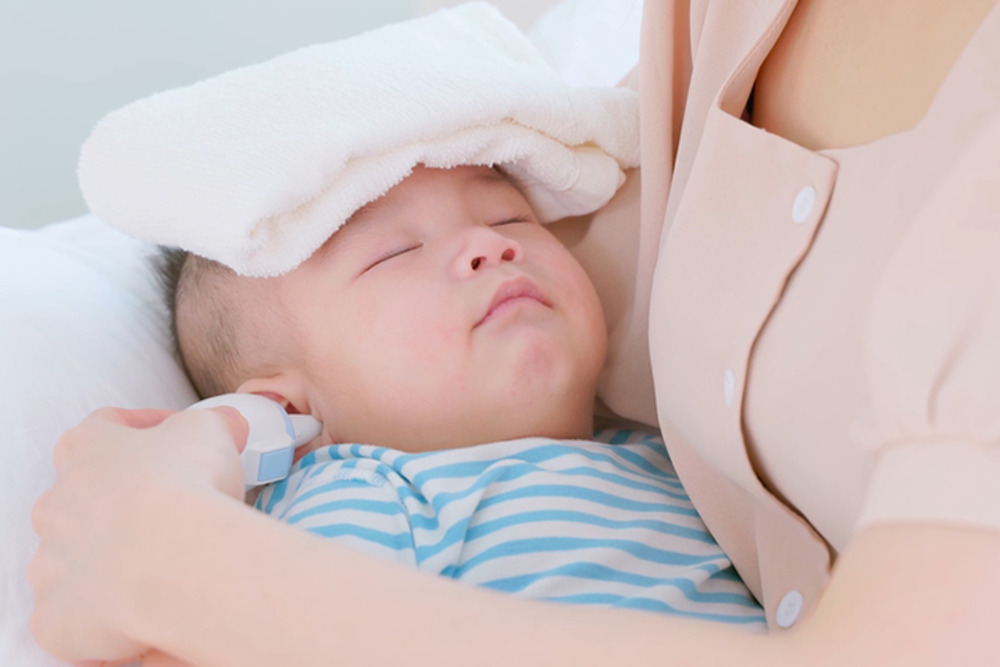
Preterm babies, also known as premature babies, are born before completing the full 37 weeks of gestation. These little ones require specialized care and attention due to their underdeveloped organs and systems.
Sweating in preterm babies is a common occurrence and should be closely monitored by healthcare professionals to ensure their well-being.
Why Do Preterm Babies Sweat?
- Several factors contribute to sweating in preterm babies.
- As their bodies are still adjusting to life outside the womb, their sweat glands may not be fully matured.
- Additionally, preterm babies often have difficulty regulating their body temperature due to their limited subcutaneous fat and immature thermoregulatory mechanisms.
Specialized Care for Sweating Preterm Babies
Given their vulnerability, it is essential to provide specialized care and monitoring for preterm babies experiencing sweating. Here are some key considerations:
1. Environmental Control
Maintain a stable and comfortable environment for preterm babies. Ensure the room temperature is appropriate and humidity levels are within the recommended range.
2. Skin Protection
Due to their delicate and sensitive skin, use gentle products and avoid dressing them in clothes that may trap heat or cause irritation.
3. Monitoring
Healthcare professionals closely monitor preterm babies’ vital signs, including body temperature, to identify any potential issues or abnormalities.
It’s crucial for parents and caregivers of preterm babies to work closely with healthcare providers to ensure their little one’s well-being. Regular follow-ups and open communication will help address any concerns and provide the necessary support.
Remember, while sweating in preterm babies is often a normal part of their development, it’s essential to consult with medical professionals for accurate assessment and guidance to ensure their optimal health and safety.
The Final Note: When Do Babies Start To Sweat
To sum up, understanding when do babies start to sweat is essential for parents to navigate the normal yet sometimes puzzling phenomenon of baby sweating.
While sweating is a natural physiological response in babies, it’s crucial for parents to discern between normal sweating and excessive sweating.
By being aware of the common causes, managing baby sweating effectively, and monitoring any red flags, parents can ensure their baby’s comfort and overall well-being. It’s important to remember that while newborn sweating is generally harmless, excessive sweating accompanied by concerning symptoms may warrant further attention.
By staying informed and seeking guidance from healthcare professionals when necessary, parents can navigate this aspect of their baby’s well-being with confidence and knowledge.

